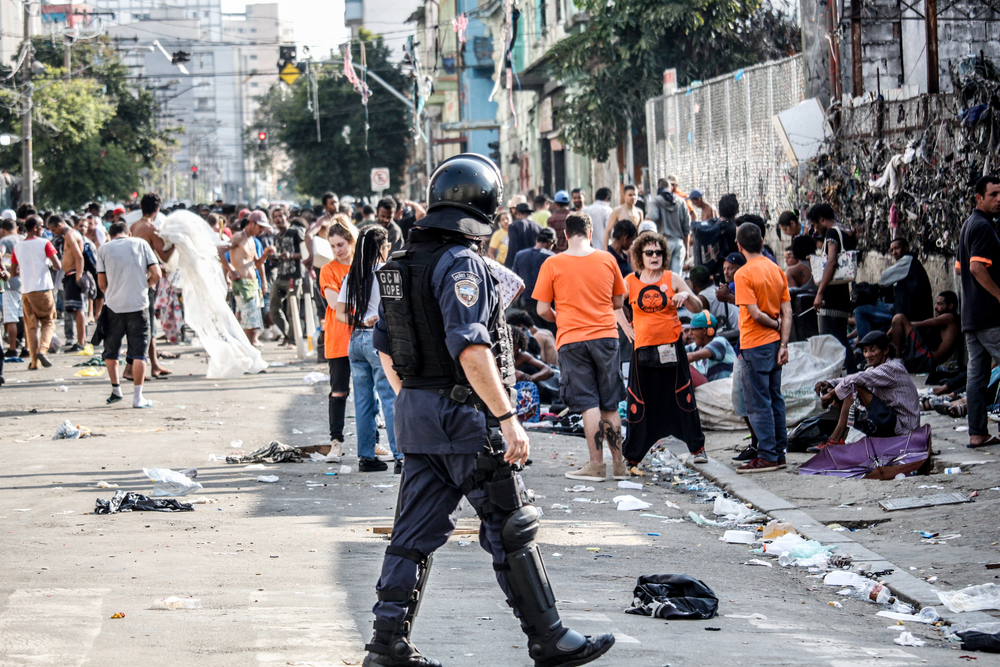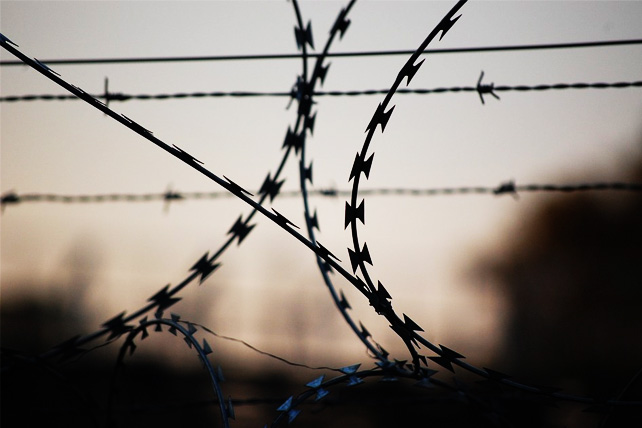TalkingDrugs’ Felipe Neis Araujo spoke with Myro Rolim, a harm reductionist and social educator based in Brazil. The interview was long yet incredibly rewarding and insightful, with fantastic lessons and reflections that Myro has distilled from his educational and professional background. We have edited the conversation and split it into two parts: the first part detailed his journey into public health and his grounding in Paulo Freire’s critical pedagogy. This second part is Myro’s reflection on the ideology of prohibition and how it maintains control.
The original conversation brings many insights from the Brazilian scene, and different approaches to solving prohibition. TalkingDrugs recommends reading it in full. There original transcript of the interview can be found at the bottom of the article in English.
Myro’s experience both as an educator and as someone highly involved in drug policy advocacy has developed his understanding of prohibition, and how it installed itself as the dominant thought for drug policy. While he speaks from a Brazilian context, prohibition is a global phenomenon that’s adapted to local contexts; many countries will have a similar model.
Harm reduction is a crime that deserves to be punished
Myro’s pedagogic background comes alive when he discusses drug prohibition. To him, prohibition is: “a device of an ideological discourse of domination between race and class. It is something that acts in a structural capacity and reproduces itself in multiple layers, meaning that the challenges a harm reductionist faces are many.”
For harm reduction in Brazil, that’s certainly true. Harm reduction advocates face constant attacks, their actions frequently portrayed as enabling or facilitating drug use, which is a criminal offence in Brazil: “This apologist discourse is idiotic. We should have transcended this idea that enabling drugs is enabling crime… In Brazil, we can’t distribute as we will be accused and criminalised of enabling drug use.”
In political discourse, supporting or even interacting with people that use drugs has been portrayed as a criminal offence: the Brazilian politician Janaína Paschoal has criticised a Catholic priest for distributing food to people who use drugs in Cracolândia (a neighbourhood known as “Crackland” in São Paulo), accusing him of encouraging crime and the use of drugs.
The criminalisation of harm reduction activities has severe consequences. For one, it impedes any sort of humanitarian support for already marginalised populations. Harm reduction interventions are not only an opportunity to provide harm reduction material for safer drug use, but a chance to deliver health support to populations that may not be involved in formal health services in the first place.
Criminalisation also means that the state is allowed to harass harm reduction workers and those around them:
“There’s intimidation, criminalisation… harm reductionists are targets of police violence. When I worked in harm reduction on the streets of Cracolândia I was stopped and searched multiple times by the police. While working… how is it possible to work in population health when you are constantly exercising violence upon them? [People who use drugs] tell me: ‘In the day you’re here taking care of me. At night the police come to beat me’.”
Drug users’ bodies as the site of prohibitionist violence
One of the primary ways that prohibition is enforced, according to Myro, is through the physical punishment of the bodies of people who use drugs:
“Prohibition has fabricated the idea that the only place that people can use drugs is a place of punishment. So the body of the user is the body where interventions are made. The use of expressions like “zombie”, for example, referring to when people use crack in a problematic manner, has an ideological purpose. When I call someone a zombie, I’m affirming that that person is incapable of thinking, they can only smoke crack.”
The discourse around the zombification of people who use drugs is frequently replicated, seen clearly in the West around the “bath salts” crisis in North America in the early 2010s. When used in the media, prohibitionist discourse will use zombie metaphors and imagery to justify its punitive response, and erase any chance for a nuanced conversation around the connection between problematic drug use and mental health.
Whatever suffering an individual is going through that led to their drug use in the first place is replaced with stigmatising language that erases their autonomy; “zombie” humans are incapable of decision-making, and thus require policing to contain their social harms.
The result, according to Myro, is the creation of “diverse forms of interdictions and punishments, primarily for people who use drugs, but also for those working in harm reduction.” Violence, exerted through the physical punishment of people who use drugs by the police, or structurally by criminalising drug use and driving people into the criminal justice system, is effectively wielded by prohibition to prevent any alternatives from being implemented.
The end-game for prohibition is perhaps the utopian dream (or nightmare?) of a society with no illegal drug use. This vision, immortalised by the UN’s 1998 ambition to create “a drug-free world”, forces an abstinence-based model of existence onto people, rewarding organisations that work towards this goal. Myro points out how religious treatment communities have been significant players in advocating for abstinence-based recovery models, with their efforts rewarded by Bolsonaro’s government since his election in 2018:
“The latest update to the National Drug Policy in 2019 removed harm reduction and its focus on care, positioning abstinence as a primary objective, enabling a great movement of capital to be channelled into these [religious] treatment communities.”
As a result, Christian abstinence-based treatment organisations, which have been denounced for their homophobia and human rights abuses in their recovery programmes, have received almost 70% of all government funding for drug treatment. Rather than be condemned by the international community, the UN has rewarded this approach, offering to fund research grants into the benefits of involving religion, spirituality, and faith as part of treatment for people who use drugs. Myro adds: “The current drug policy allows for workers and militants that are providing care in extremely vulnerable regions to be persecuted by a reactionary, backwards, neo-fascist movement.”
While there has been a surge in academic interest in harm reduction, its benefits and potential applications, access to this information must not be limited only to those with the means and ability to engage with the material. It’s essential to democratise access to life-saving information: “Workers don’t have access and I believe that not actively sharing this content is the work of prohibition.”
Most insidiously, drug prohibition not only actively criminalises harm reduction work, but it further prevents the discussion of any alternatives. “Municipalities that create spaces for open [drug] discussions are hounded by the public. How can we build ideas and projects, how can we build horizontal relationships, how to share knowledge if we don’t even have a space to gather? Prohibition prevents the production and the circulation of knowledge.”
The true costs of enforcing and maintaining prohibition are not the billions spent in law enforcement, fumigating crops or pursuing organised crime. It’s the lives of thousands that are seen as disposable by the War on Drugs:
“You don’t kill cocaine, you don’t kill weed, you don’t kill crack. You kill Zé. You arrest Sueli. You repress Antonio. They are the ones that die in the war on drugs. It’s not the drugs that die.”


